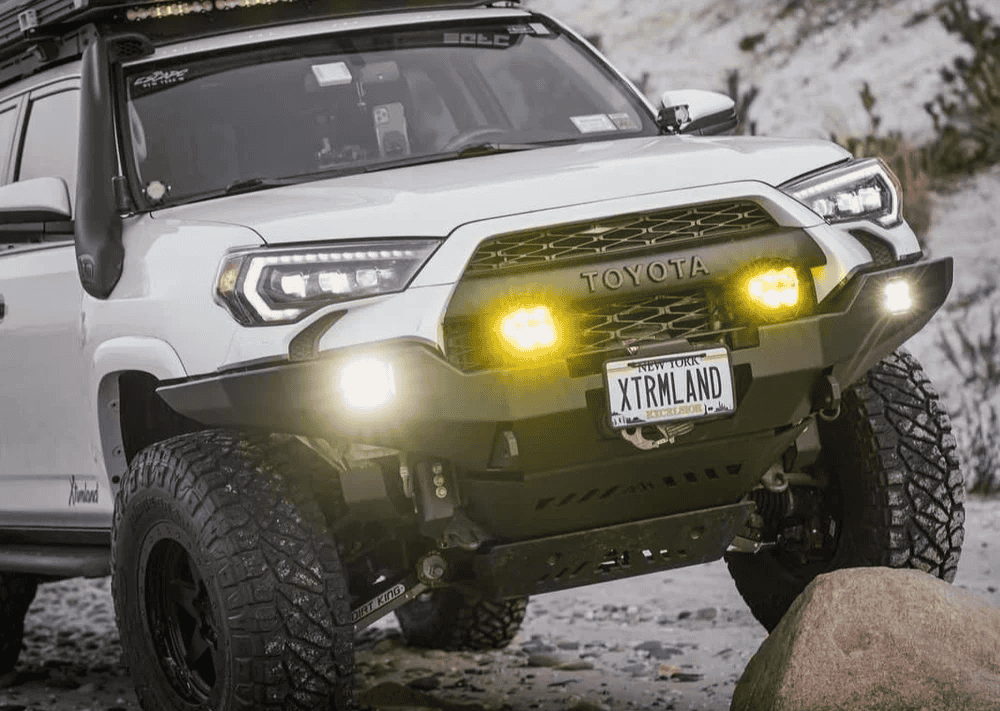Overland Vehicles

A self contained expedition rig is a mobile base camp that supports travel without outside hookups. The foundation is energy, water, and storage planned around your daily use. Every component has a job, and every ounce counts toward payload, range, and stability. The goal is quiet independence, not just a pile of accessories. When systems are sized to your routes and season, the rig runs smoothly for days at a time.
Energy starts with a battery bank sized by daily watt hour needs. Add up fridge draw, lights, fans, diesel heater, water pump, comms, and device charging. Solar replenishes during daylight, while a smart alternator charge system tops off while driving. A quality inverter handles outlets for tools or cooking when needed. Mount critical components where they are protected, ventilated, and easy to service. Redundancy matters, so carry a small jump pack and fuses.
Plan water by liters per person per day, plus cooking and dish methods that minimize use. A built in tank low in the chassis keeps weight centered. Include pre filter, carbon filter, and a way to fill from questionable sources when necessary. For grey water, an underslung tank with a simple dump valve keeps camp tidy. Waste solutions vary by crew and climate, but the best systems are simple, seal tight, and clean out quickly.
Two guiding ideas shape storage: heavy items low and between the axles, and daily items within one reach. Use modular bins that survive vibration and weather. A gear wall keeps recovery tools, shovel, and traction boards in plain sight. Inside the cabin, a galley with latching drawers prevents rattles and spills. Label everything. When the inevitable night time repair happens, you should find parts by feel.
There is no perfect base, only tradeoffs. Trucks with campers offer excellent payload and ground clearance. Large vans give standing room, an insulated shell, and stealth in town. Mid size SUVs towable setups add flexibility for those who prefer a lighter towable behind a capable daily driver. Whatever you pick, start with a realistic gross vehicle weight rating and weigh the rig during the build so you do not exceed it.
Payload is the guardrail that keeps everything safe. Weigh the vehicle empty, then track every add, from armor to batteries to water. Water weighs roughly one kilogram per liter, and accessories stack up quickly. A suspension tuned for constant load improves handling and braking distance. Tires should match the new weight and terrain, with a load rating that leaves margin. Balance front and rear to avoid porpoising on washboard.
Four wheel drive, low range gearing, and a locking differential change what is possible when trails turn ugly. Skid plates protect the underbody, and recovery points must be frame mounted. Suspension travel and damping should match terrain, from rocky ledges to sandy tracks. Airing down expands tire contact patch for traction and comfort, but carry an accurate compressor and gauge. Remember, capability means nothing without control.
Modern navigation blends offline maps, satellite imagery, and track recording. Pair a dash unit with a reliable phone app for redundancy and route planning. Communications should include a satellite messenger for emergency signaling and check ins when far from towers. External antennas improve range for handheld radios. For constant connectivity, many travelers add a satellite internet solution when work demands it, but safeguard power budget accordingly.
A rig is only as good as its crew’s routines. Keep a pre drive checklist for fluids, tire pressures, and loose gear. Store critical spares like belts, hoses, u joints, and hardware organized by system. A compact tool roll with quality sockets and electrical repair supplies solves most roadside issues. In camp, set up in the same order every time so teardown is swift when weather shifts.
As you narrow your spec, match systems to climate. In the cold, an efficient diesel or fuel powered heater paired with real insulation keeps moisture under control. In heat, ventilation plus shade management makes a bigger difference than you expect. Reflective window covers and a roof fan can turn a swelter into a nap.
The last piece is risk management. Recovery gear should include rated soft shackles, a tree saver, a winch line dampener, and gloves. Practice safe pulls before you need them. Fire safety includes a quality extinguisher and a fire blanket placed near the galley. A first aid kit should be tailored to your team’s skill level and packed where it is reached in seconds.
If you decide a professionally engineered system is the smarter route, explore Overland rigs that integrate power, water, storage, and recovery from day one. For targeted upgrades, a Custom overland upfit can add energy systems, racks, lighting, or communications without rebuilding the entire vehicle. Curious how a shop approaches design and handoff? See our approach at Why choose OZK.
Builds tailored by experienced hands make expedition travel feel calm and capable. If your plans stretch from forest roads to high desert, OZK Customs designs and delivers self contained systems that stay reliable trip after trip. Share your route style, crew size, and season goals, and we will translate that into clean wiring, smart storage, and durable finishes that stand up to the miles.
Ready to spec a self contained expedition rig that matches your routes and rhythm? Tell us how you travel and we will design a reliable system for power, water, storage, and safety. Submit the form and our team will map a clear plan, timeline, and budget to get you confidently on the trail.
ADDRESS:
6159 E Huntsville Rd, Fayetteville, AR 72701
PHONE:
(479) 326-9200
EMAIL:
info@ozkvans.com